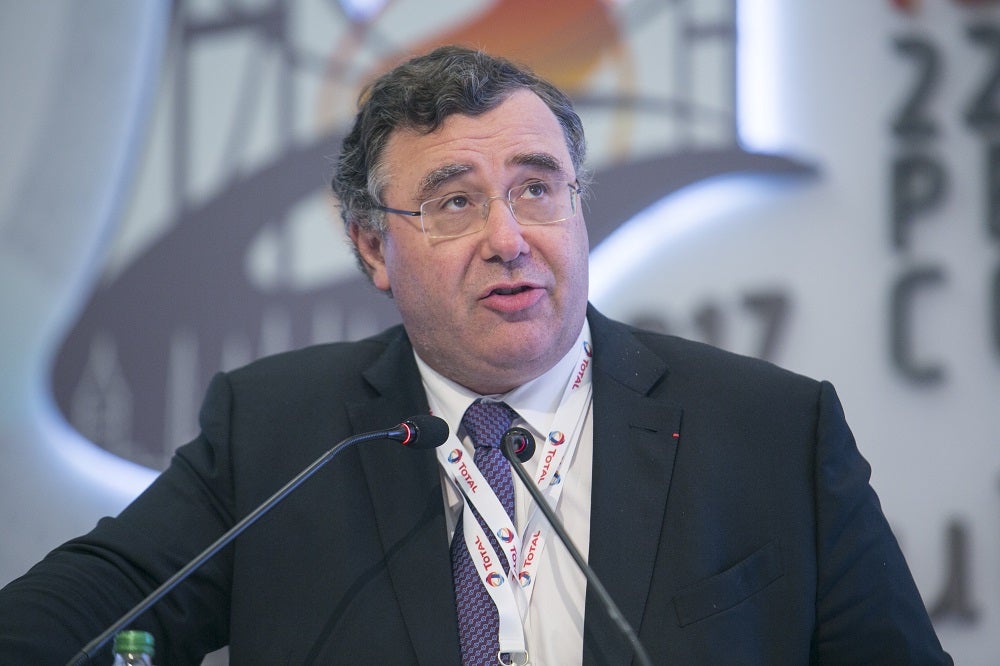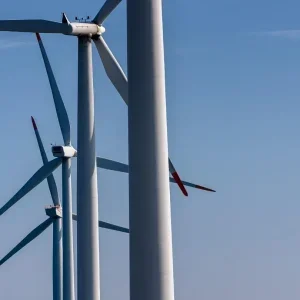
Divesting from major oil and gas producers on grounds of climate change makes “little sense”, says Total chief executive Patrick Pouyanné, because other companies will simply pick up the excess production.
The boss of the French energy firm urged investors and shareholders to support “big players with large balance sheets and financial capacity” because without them the low-carbon energy transition will not “become a reality”.
Stakeholder pressure on the world’s top oil companies is increasing amid heightened concerns over their contribution to climate change and demands for decisive action to reduce emissions across the energy industry.
Many oil and gas firms, including Total, have outlined recent ambitions to gradually pivot away from fossil energy in favour of electrification and alternative fuels.
But public scrutiny remains strong, with warnings of divesting if shareholders do not feel these plans are going far or fast enough, or the business risks associated with climate change are not being adequately addressed.
Oil and gas demand won’t disappear soon, and divesting would leave production for others to take up
Speaking at the IP Week conference today (23 February), Pouyanné called for patience from investors while making a pitch for the role companies like Total have to play in the low-carbon energy transition.
“The word transition does not mean we can do everything in the blink of an eye,” he said. “We need time because we need investments. The energy transition has to be done, but it will take time because it’s a highly capital-intensive industry – and renewables are even more capital intensive than oil and gas.
“Frankly, it makes little sense to me to divest from Total, Shell or Exxon just because of climate change. Because even if [they] stop producing oil and gas, other companies will produce it because the world requires this energy today.
“I’m sure national [oil] producing companies from many countries would be happy, but it will make no change in terms of climate change globally. So my answer [to investors] is let’s build a broad energy model, and let’s consider Total as a company in transition but that will really contribute to the energy transition.”
The Total chief said he does not expect to see a decline in global oil and gas demand before 2030, although confirmed the company would gradually change the balance of its product mix to include more energy from gas and renewable electricity in preparation for lower oil demand in the following decade.
In the meantime, cash generated from the company’s oil and gas business will be used to finance clean energy spending, with 20% of this year’s $12bn capital budget allocated to its renewables and power business.
Total’s focus on natural gas as ‘indispensable’ complement to renewables
Last May, Total outlined a target to become a net-zero business by 2050, diversifying away from fossil fuels to focus increasingly on low-carbon and renewable energies. It even recently proposed a name change to TotalEnergies to reflect this new emphasis.
It has set milestones to build 35 gigawatts (GW) of renewable capacity by 2025 – a goal it has already achieved – and 100GW by 2030. Total further plans for 15% of its business to be based on electricity products by the end of this decade, and to cut oil products to one-third of its sales portfolio over the same period, compared to more than 50% today.
However, Pouyanné was adamant about the role natural gas will play in Total’s long-term strategy as an “indispensable” complement to renewables.
“It’s quite clear,” he said. “All customers want reliable energy, and for us natural gas is the complement to renewable energy. There is no way to think of a reliable energy system without having a flexible way to produce electricity. Gas offers this flexibility.”
He pointed to recent events in Texas – where a winter storm has forced power outages for millions of residents, businesses and facilities – as an example of the consequences of not having a reliable power system capable of rapidly responding to such incidents.
“I’m afraid to say that the recent experience in Texas demonstrated that when it’s snowing wind turbines can get frozen and the solar panels can get covered by snow,” he added. “You have a problem with reliability, you know.”
While Texas is indeed a beacon of US renewables growth and the unavailability of these sources did not help the situation, the events witnessed over the past weeks have been widely attributed more to failures of natural gas infrastructure than the inability of wind and solar farms to operate in low temperatures.
A recent commentary from the International Energy Agency noted: “Texas has a power shortage because it has a gas shortage. Most of Texas’ electricity demand is met with natural gas. When demand rises, nearly all the incremental supply comes from gas-fired power generation.
“But the cold weather hampered gas production, with frozen gas wells contributing to a 20% cut in South Central’s gas production. As a result, there wasn’t enough to supply the system’s gas generators.”






